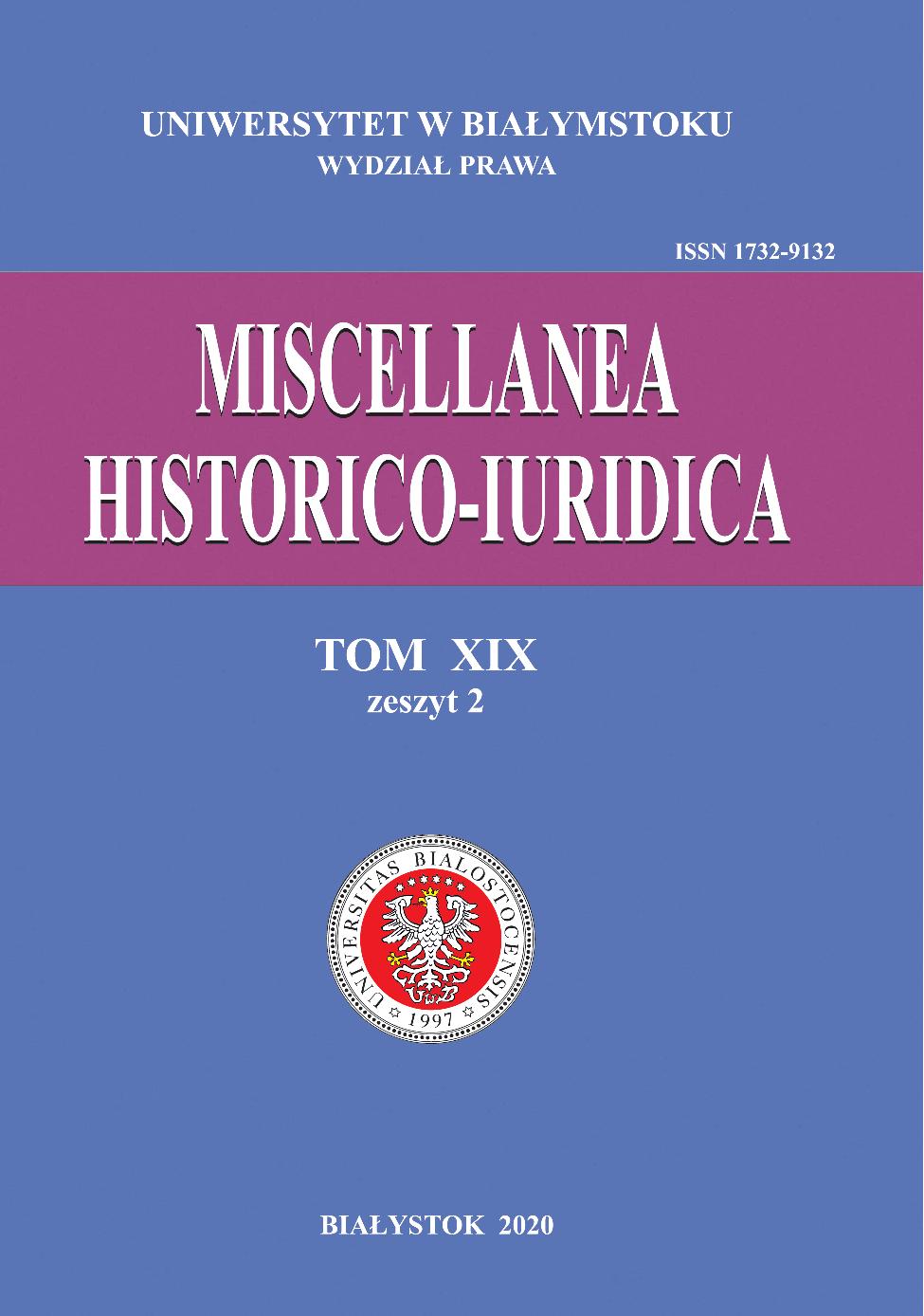BgHSt 20, 22 und die Neubürger-Klausel des deutschen Strafanwendungsrechts – ein deutsch-polnischer Fall schreibt Rechtsgeschichte bis heute
The judgment of the Bundesgerichtshof (Federal Court of Justice) from the 4th September 1964 and the "New Citizenship Clause" as part of the German law of jurisdiction in criminal cases – a German-Polish case and its implications for the legal develo
Author(s): Martin HegerSubject(s): History, Law, Constitution, Jurisprudence, Criminal Law, Local History / Microhistory, Recent History (1900 till today), Post-War period (1950 - 1989)
Published by: Wydawnictwo Uniwersytetu w Białymstoku
Keywords: Federal Court of Justice; New Citizenship Clause; criminal cases; German-Polish case
Summary/Abstract: In its judgment of the 4th September 1964 the German Federal Court of Justice had to deal with a German-Polish case of murder. The accused persons were members of the German minority in Poland and lived in the Western part of Poland, when German troops occupied that territory in the autumn of 1939. Short after the invasion they killed the members of a Jewish family living in the same territory. Both, the perpetrators as well as the victims were Polish nationals, when the crime was committed. The perpetrators have got the German nationality in the following. It is not clear, whether they have been naturalized by German authorities during WW II, but if not, they were seen as German nationals with the Getting-into-Force of the German Basic Law (Constitution), because they were refugees from Poland to Germany. Therefore, Article 116 § 1 Basic Law naturalized them as German nationals. For the criminal case it was crucial whether the later naturalization can give the German Justice system jurisdiction over a case which happened before the perpetrator has reached the German nationality, as it was (and still is) stated in section 4 (resp. today section 7) of the German Criminal Code. The paper should deal with the implications of this so-called "New Citizenship Clause" and with the circumstances of the case and the following cases at Western German Courts against German people for committing murder in the occupied Polish territories during WWII. Shortly after the named case, the Auschwitz trial started in Frankfurt. On that background, the paper reflects on the situation between West and East Germany as well.
Journal: Miscellanea Historico-Iuridica
- Issue Year: 19/2020
- Issue No: 2
- Page Range: 141-160
- Page Count: 20
- Language: German

